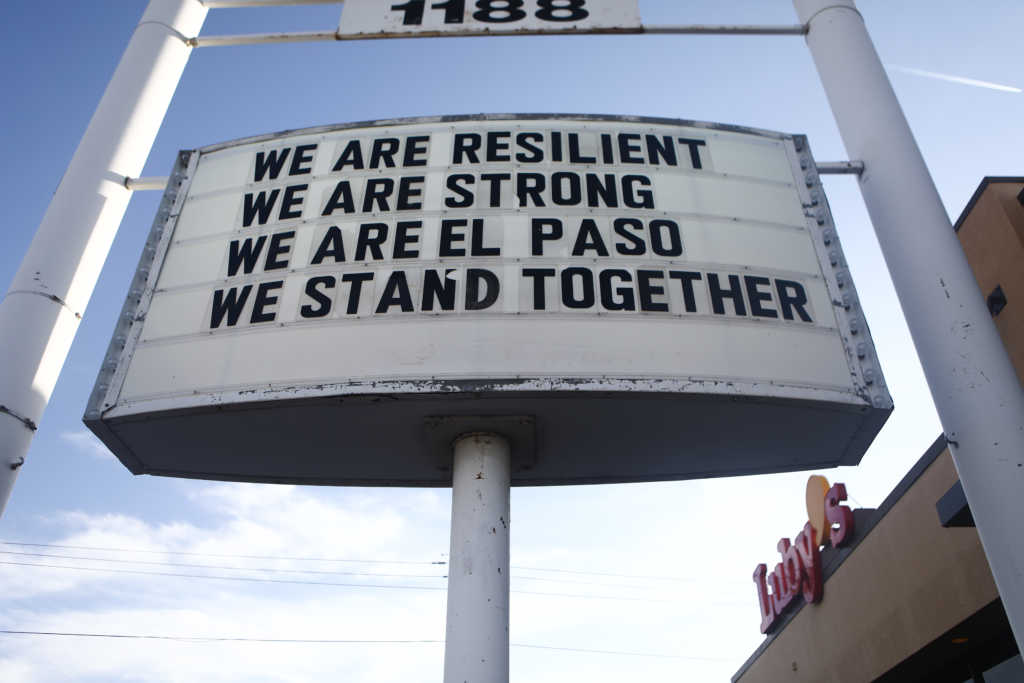It’s easy to become numb to horror when you work in the news business, and to an extent, that’s a helpful coping mechanism — particularly for reporters on the ground, coming face-to-face with tragedies like the shooting over the weekend in El Paso, which claimed the lives of 20 people and injured dozens more.
But as Christians, we must guard against becoming desensitized to pain. The great author and self-styled theologian C.S. Lewis once declared that God “shouts in our pains.” He went on to say it is “his megaphone to rouse a deaf world.”
There’s no reason such unspeakable violence and hatred exists on this earth aside from the fact we are a broken, fallen, and imperfect people. We are hellbent on our own destruction and in desperate need of redemption. Even with that head knowledge, though, sometimes tragedy — a shooting in Texas, a massacre in Ohio, or a personal trial — becomes too much to bear and we grow weary and lose sight of hope. God, through Scripture, gives us handles to navigate those seasons.
Righteous anger is a good thing, so long as it’s refining our faith and calling us back to sovereign God. David showed us the way in Psalm 13, when he asked the Lord, “How long will you forget me? Forever? How long will you look the other way? How long must I struggle with anguish in my soul, with sorrow in my heart every day? How long will my enemy have the upper hand?”
So often, rather than taking these questions to God, we turn on one another. We begin seeking salvation from our elected officials, from the president or from Congress. They have a role to play, no doubt; after all, Scripture tells us God established government for our good, even if it doesn’t feel that way. But that doesn’t give us cover to demonize each other in the name of soothing our societal sickness; some are too quick to say prayers “are not enough” while others may too readily defend the status quo.
The truth is prayer and communion — mourning and rejoicing together — should serve as our navigational beacons, calling us back to hope.
David took his anger and his confusion to the Lord. Psalm 13 doesn’t end with David’s questions. He shares his broken heart and ultimately found renewed strength. He declared, “I trust in your unfailing love. I will rejoice because you have rescued me. I will sing to the Lord because he is good to me.”
The psalmist’s trust in God wasn’t dependent upon answers or comfort that all would be well immediately. His trust was contingent upon hope — a radical hope found in God alone. Hope comes when we learn to accept that, even in the darkest corners of human tragedy, the Holy Spirit is at work. It’s a mysterious trust in the promise of Psalm 30, in which David rejoiced in the fact that “weeping may last the night, but joy comes with the morning.”
Circumstances and situations don’t change overnight; healing is a heartrending and agonizing process. But by clinging to a God-ordained hope — by resting in sorrow but not dwelling in darkness — the soft glow of sunrise will begin to reveal itself.
In Proverbs 4:18, Solomon wrote, “The way of the righteous is like the first gleam of dawn, which shines ever brighter until the full light of day.”
Following Jesus’ resurrection and before his ascension into heaven, the disciples often asked when he would “free Israel and restore our kingdom.” They wanted to know when the brokenness would fade away. Jesus’ answer to them was both confounding and comforting.
“The Father alone has the authority to set those dates and times, and they are not for you to know,” he replied. “But you will receive power when the Holy Spirit comes upon you. And you will be my witnesses, telling people about me everywhere — in Jerusalem, throughout Judea, in Samaria, and to the ends of the earth.”
This is how we should respond to pain and tragedy. We shouldn’t wallow in the hopelessness of debate and arguments. We should shout hope to the hurting, listen to the cries of the broken, and tell people everywhere about the Gospel of Jesus.



